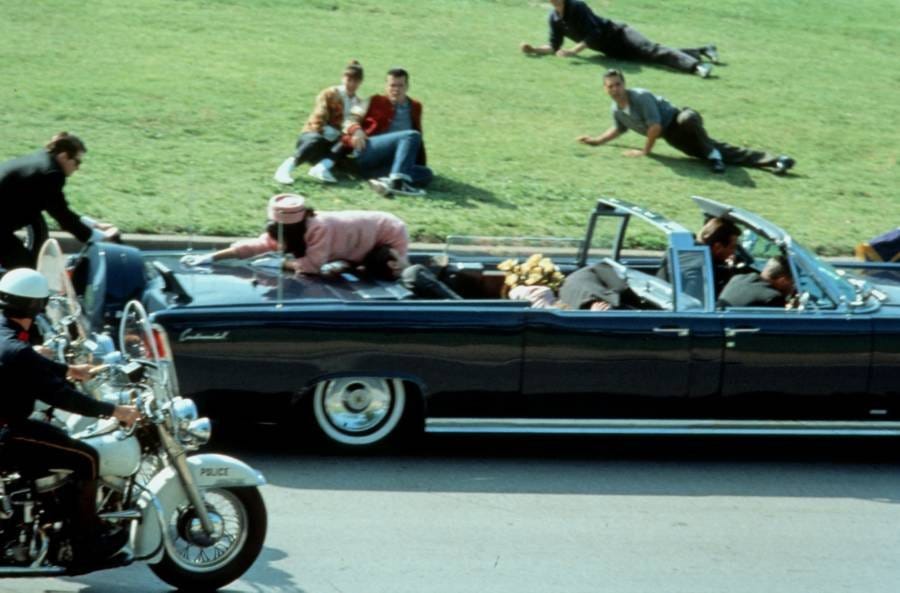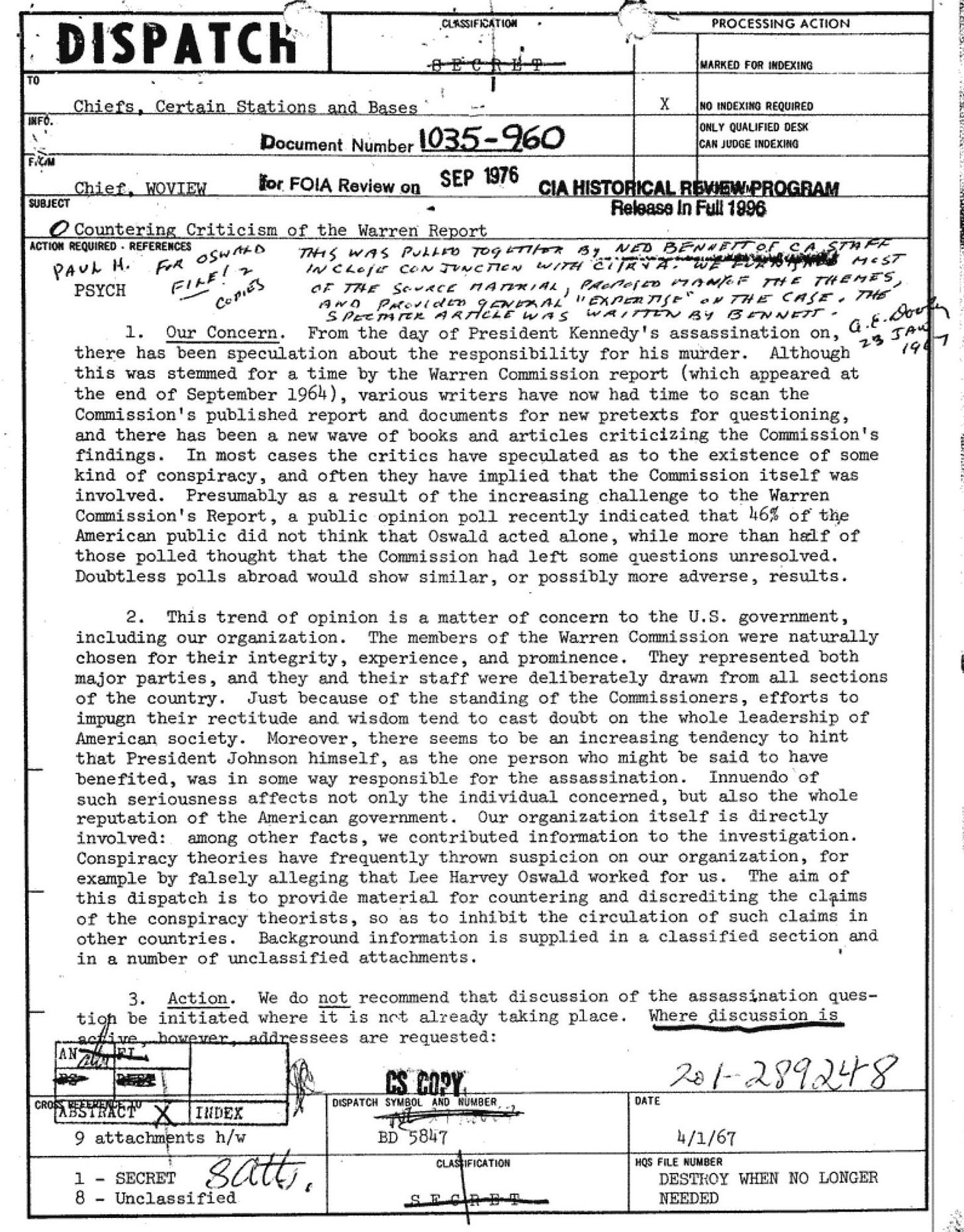by Dan Fournier, Activist Post:
 “So do not be afraid of them, for there is nothing concealed that will not be disclosed, or hidden that will not be made known.” – Matthew 10:26
“So do not be afraid of them, for there is nothing concealed that will not be disclosed, or hidden that will not be made known.” – Matthew 10:26
Introduction
It seems like you can’t catch a news headline or social media post these days without coming across the terms conspiracy theory and conspiracy theorist, or phrases like ‘spreading conspiracies’. One has to wonder: why are they so frequently employed?
TRUTH LIVES on at https://sgtreport.tv/
In my most recent published work, I referenced an article from Canada’s National Post which ran with the headline ‘CBSA says it’s investigating border officer spreading COVID conspiracies online.’
The problem with these kinds of articles is that they are too often merely used as hit pieces to ridicule, degrade, and discredit any individual or group that goes against a certain narrative or disagrees with an author’s (or their publication’s partisanship or funders’) views.
Moreover, their authors very seldom make specific references or claims as to why they label their targets when using such over-used and over-abused disparaging rhetoric. When this is the case, it leads me to believe that the overall purpose of their pieces is to disparage their targets more than anything else.
Another recent example of this involves that from the article entitled ‘Network of Syria conspiracy theorists identified – study’ written by Mark Townsend from The Guardian (UK). In the article, the author claimed “journalist Aaron Maté at the Grayzone is said by the report to have overtaken Beeley as the most prolific spreader of disinformation among the 28 conspiracy theorists identified.” Maté had to refute the claim made against him which also involved contacting Townsend by phone. His counter article and the phone conversation appear on his Substack page (see ‘NATO-backed network of Syria dirty war propagandists identified)’ and is definitely an interesting case on how these ploys take place.
Countless other instances could be cited, but suffice it to say that there is no shortage of them.
But what is perhaps even more laughable with this phenomenon is the fact that these authors wantonly use these terms without even knowing their true meanings and where they actually originate from.
Before looking into these, though, we must first and foremost examine the meaning of the word ‘conspiracy’ itself. Oxford defines it as:
a secret plan by a group of people to do something harmful or illegal
Conspiracies have been an integral part of humanity ever since people have bonded together in groups for a better chance at survival.
Lord knows that history is riddled with an abundant supply of conspiracies and we will look at some notable examples later on.
How did the term come about & become a tool for defamation?
Though the term ‘conspiracy theorist’ itself dates as far back as the 19th century, it became much more prominent in the years following the assassination of U.S. President John F. Kennedy.
Moreover, it’s really in the 1960s where it became more abundant and has taken on a negative connotation. This is in large part because of the Central Intelligence Agency (CIA) of the United States of America.
The usage of ‘conspiracy theorist’ was principally brought about to discredit any person or outfit that questioned the findings of the Warren Commission regarding the official narrative of the assassination of U.S. President John F. Kennedy.

The assassination of U.S. President John F. Kennedy on November 22, 1963. Image source: https://allthatsinteresting.com/famous-assassinations
As to not be labelled a conspiracy theorist myself, here is some tangible evidence to support my claim that the CIA has been complicit with regards to the usage of the term as a means to disparage and discredit individuals with opposing views to an official narrative. An official DISPATCH (document number 1035-60) dated January 1, 1967 which was declassified and released following a FOIA request got published on the Mary Ferrell Foundation (MFF) website – one which contains nearly 2 million pages of documents, government reports, as well as other materials. The first page of the dispatch appears as follows:

COUNTERING CRITICISM OF THE WARREN REPORT, NARA Record Number: 104-10009-10022 from the Mary Ferrell Foundation, Dispatch 1035-960, Source: https://www.maryferrell.org/showDoc.html?docId=53510#relPageId=2
Firstly, we can notice the term ‘PSYCH’ in the upper-left hand corner of the document which indicates that this relates to Psychological Operations. We can see from the first paragraph that their main concern is about speculation regarding the assassination of President Kennedy and how various writers are questioning the findings of the Warren Commission report. The end of section 2 on the first page states:
“The aim of this dispatch is to provide material for countering and discrediting the claims of the conspiracy theorists, …”
Scrolling down to the second page under section 3 a. appears the following [emphasis added]:
“To discuss the publicity problem with liaison and friendly elite contacts (especially politicians and editors), pointing out that the Warren Commission made as thorough an investigation as humanly possible, that the charges of the critics are without serious foundation, and that further speculative discussion only plays into the hand of the opposition. Point out also that parts of the conspiracy talk appear to be deliberately generated by Communist propagandists. Urge them to use their influence to discourage unfounded and irresponsible speculation.”
And shortly after under section 3 b., it continues:
“To employ propaganda assets to answer and refute the attacks of the critics. Book reviews and feature articles are particularly appropriate for this purpose.”
So, there you have it in black and white. The CIA specifically directs the use of their elite contacts which include politicians and editors – presumably of major newspapers and most likely of major broadcasters. Tactics suggested include writing feature articles (to counter the official narrative), writing book reviews – presumably negative ones, and further labelling dissenters as ‘Communist propagandists’ – a term that had much more of an accentuated defamatory effect back then than it does today.
This raises the obvious question of why the CIA was so seriously concerned about media coverage with regards to the assassination. What’s it to them? Did they have something hide? Where they pressed to do so by the Lyndon Johnson administration? If so, why?





